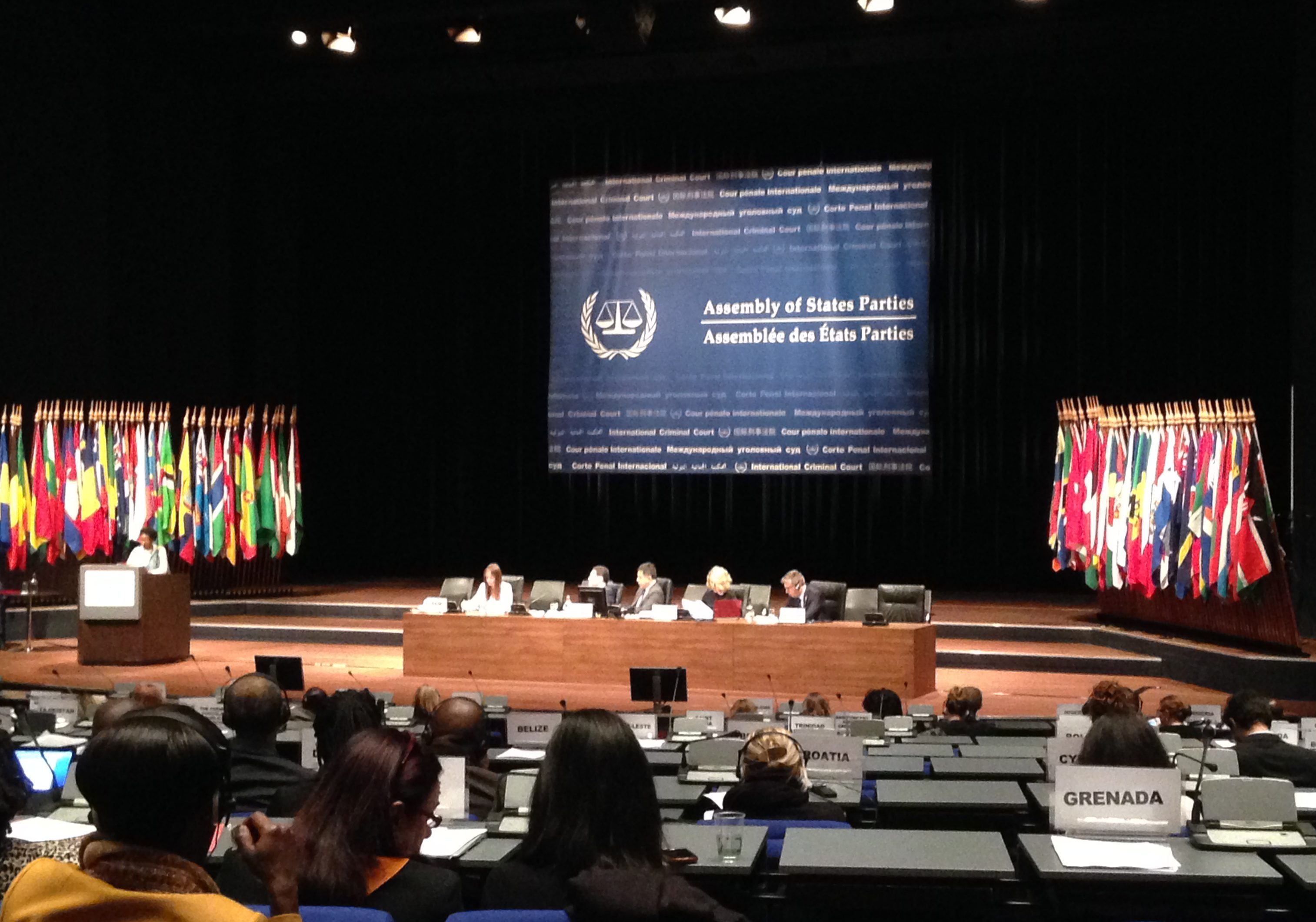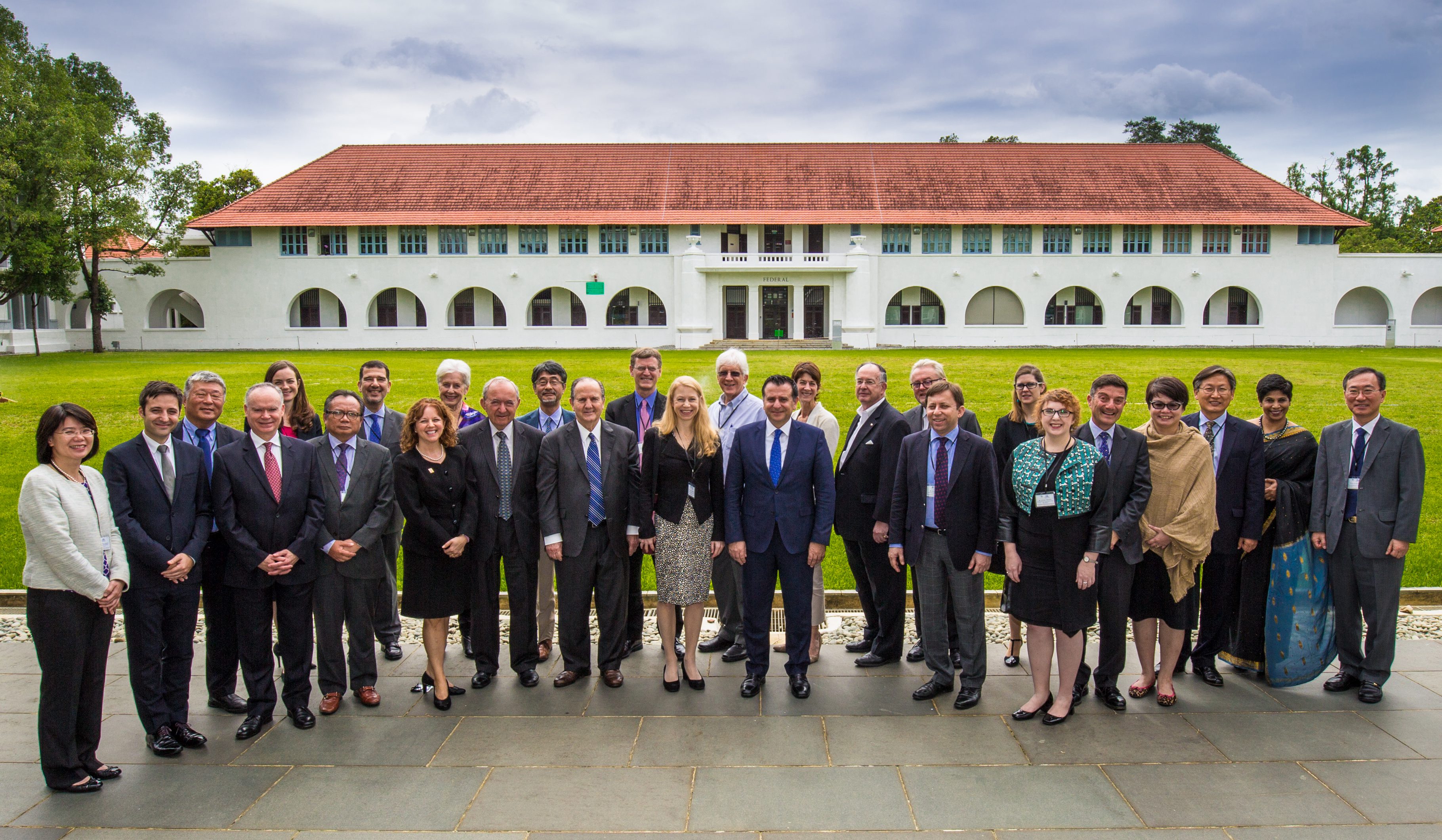Last fall I had the opportunity to witness and celebrate forward progress in international law making. At the end of September, I attended a terrific conference on the occasion of the 70th anniversary of the issuance of the judgment of the International Military Tribunal at Nuremberg.

A plenary session at the Fifteenth Session of the ICC Assembly of States Parties, held Nov. 16-24, 2016 in The Hague, the Netherlands
From November 16–22, I participated in the Fifteenth Session of the International Criminal Court’s Assembly of States Parties in The Hague, which featured both some difficult debates about the proper future and direction of the Court but also celebrated the launch of the Prosecutor’s Policy on Children, as well as important stocktaking of many of the judicial milestones the Court achieved over the past year.
Finally, from December 9–11, 2016, the Harris Institute convened, along with the Centre for International Law at the National University of Singapore, an Asia-Pacific Experts’ Meeting with members of the International Law Commission to debate the further contours of the International Law Commission’s work on a new draft convention on crimes against humanity.

Asia-Pacific Experts’ Meeting at the National University of Singapore to discuss the International Law Commission’s work on crimes against humanity
That was then. This is now. Today, the 45th President of the United States signed an order cancelling U.S. participation in the Trans-Pacific Partnership trade agreement, legislation was just introduced to “restore American sovereignty” by pulling the United States out of the United Nations, and U.S. membership in NATO is being criticized. “Global Trumpism,” as Foreign Affairs Magazine calls it, is isolationist, xenophobic, anti-trade and anti-multilateralist. In other words, it is a broadside attack on the entire Pax Americana, the international institutional system that was created at the end of World War II to stop the world from once more descending into war—a third World War that, in a nuclear age, was likely to have apocalyptic consequences for humanity and for the whole planet.
![(Source: Gage Skidmore [CC BY-SA 2.0], via Flickr)](http://sites.law.wustl.edu/WashULaw/harris-lexlata/wp-content/uploads/sites/25/2017/01/25953510345_e8e303c686_k.jpg)
Source: Gage Skidmore [CC BY-SA 2.0], via Flickr
Will “Global Trumpism” succeed? Will it destroy the international system? With what consequences? Is globalization a “sin” that needs rectification? (For an essay on the positive side of globalization, see Fareed Zakaria’s new piece, Everyone seems to agree globalization is a sin. They’re wrong.) Stay tuned to Lex lata, lex ferenda for up-to-date analysis on this and other foreign policy questions.
